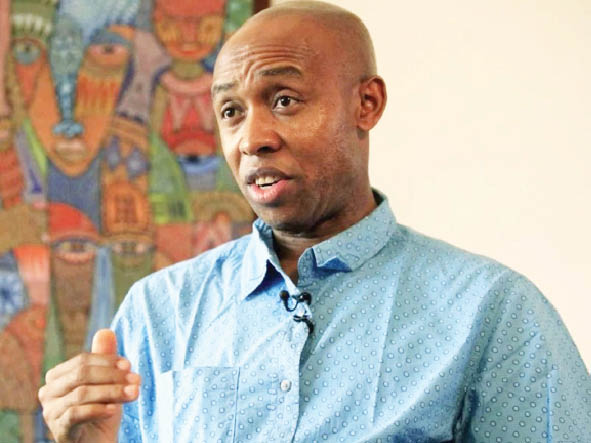Professor Chidi Odinkalu, a renowned human rights lawyer and former chairman of Nigeria’s National Human Rights Commission (NHRC), has criticised the decision of an Ekiti magistrate to deny bail to activist and lawyer Dele Farotimi.
He made this known while speaking on Inside Sources with Laolu Akande on Channels TV on Friday.
Odinkalu said, “I think people need to know: Number one, a Magistrate Court is known as a court of summary jurisdiction, and a High Court is a superior court of record.”
He questioned the competence of the magistrate in handling the matter.
“A magistrate asking for an application in writing for bail on a charge in which the maximum penalty is two years either has not gone to school properly or is acting beyond the bounds of reason.”
Odinkalu further clarified that the charges against Farotimi were not felonies and, as such, should have made bail automatic under the presumption of innocence.
“There is actually no reason or basis for the magistrate to demand for a formal application. The suspect in this matter is entitled to bail on presumption of innocence,” he said.
He also drew attention to the broader issue of pre-trial detention in Nigeria’s judicial system.
“In metropolitan prisons, over 70 percent of inmates are awaiting trial. That means the prisons are holding people who are not supposed to be there. And the average duration of pre-trial detention is over three years as we speak. That is why the courts, as a matter of policy, must ensure that whenever the crime is bailable, they exercise their powers and discretion in relation to bail.”
Odinkalu expanded on the inefficiencies in the judicial system, lamenting the financial and human costs of wrongful detention.
“We are spending assets and lean public resources on the wrong sets of people,” he said, pointing to the cascading effects of a flawed bail system on Nigeria’s already overstretched prison facilities.
He also criticized the lack of understanding of Nigeria’s legal framework, pointing out the absurdity of issuing a warrant in a state for an offense that is not criminal in that jurisdiction.
“Nigeria is 38 legal systems. When a warrant is issued in one state for arrest in another state, the crime has to have been committed in that state where the warrant was issued. I’m not sure they knew that defamation is not a crime in Ekiti State.”
Odinkalu’s critique extended beyond Farotimi’s case to the broader issues plaguing Nigeria’s judiciary. Referring to a case involving Chief Afe Babalola, SAN, where the Supreme Court imposed punitive costs on the senior lawyer, Odinkalu questioned the logic and coherence of some recent judicial decisions.
“I’m not quite sure I can claim to be a lawyer anymore. Many of the decisions that happen these days, I cannot understand them. Each word I read, I can understand, but when I put together the logic, not at all,” he said.
Odinkalu called for urgent judicial reforms to address these systemic issues, ensure fair administration of justice, and restore confidence in the rule of law.

 Join Daily Trust WhatsApp Community For Quick Access To News and Happenings Around You.
Join Daily Trust WhatsApp Community For Quick Access To News and Happenings Around You.


